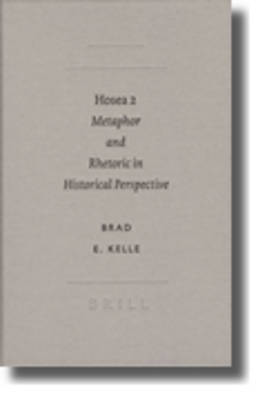SBL - Academia Biblica
1 primary work
Book 20
The complex and, at times, violent metaphorical discourse of "Hosea 2" has elicited a variety of interpretive approaches. This study explores the text from the perspective of rhetorical criticism. The classical conception of rhetoric as the art of persuasion and the function of metaphor within persuasive discourses and social settings correlate with the oracular characteristics of Hosea 2 and illuminate its use of specific metaphors. A reading of "Hosea 2" from this perspective proposes that the prophets of Israel may have functioned in a manner similar to the orators of ancient Greece, who delivered extended rhetorical discourses designed to discern meaning in contemporary events and to persuade audiences. This study offers a distinctively political reading of Hosea 2 that explores the text as a metaphorical and theological commentary on the political and religious dynamics in Israel at the close of the Syro-Ephraimitic War (731-730 BCE). Paperback edition is available from the Society of Biblical Literature.
